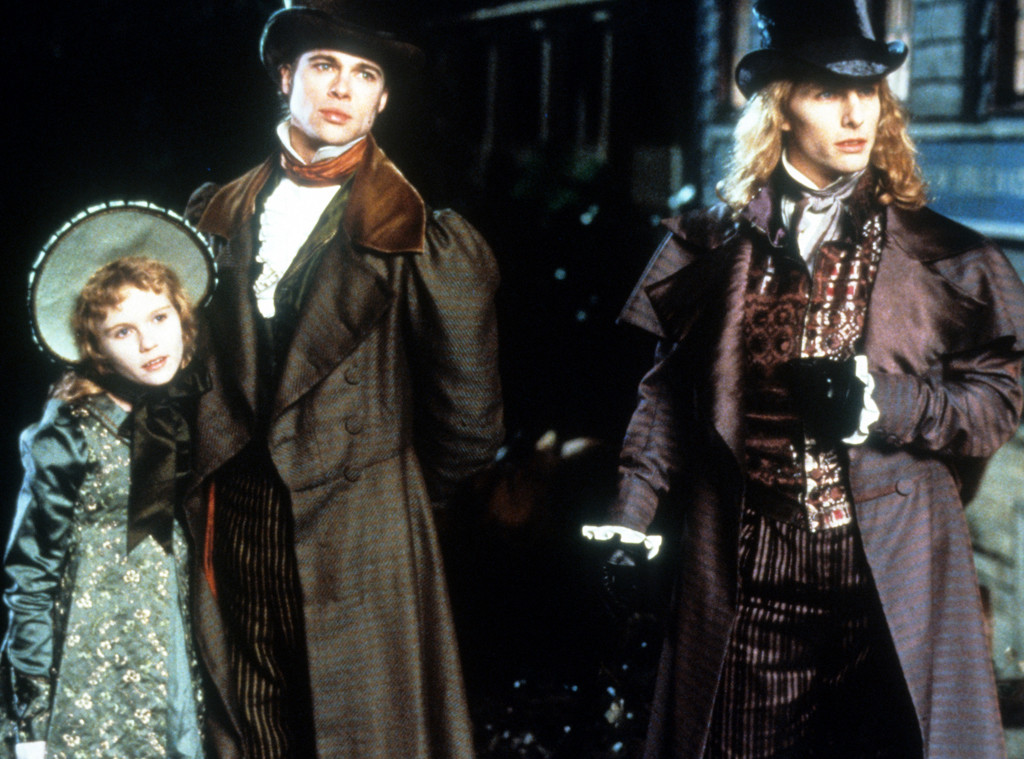LMST 345_Topic: Vampires_Interview with the Vampire by Anne Rice
LMST 345
Topic: Vampires
Read: Interview with the Vampire by Anne Rice
Topic: Vampires
Read: Interview with the Vampire by Anne Rice

Based on a previous short story piece written by the same author, 1976 Gothic - horror novel, Interview with the Vampire by Anne Rice, is developed from the perspective of vampire - Louis de Pointe du Lac, telling his life story to a young reporter interested in knowing the process behind the conversion. Insisting on starting from the beginning, Louis recalls over 200 years of memories, emphasizing the need to recollect the series of events in chronological order. He shares that originally from Louisiana, he was an indigo plantation owner. Traumatized by the death of his brother, Louis seeks out his own death wish as a means to punish himself for feeling guilty. Eventually crossing paths with a vampire named Lestat de Lioncourt, Louis undergoes the intimate process of being turned into a vampire for the two to become “immortal companions”.
Controversy sets in when the two realize that they have different moral standards when it comes to how vampires should feed. Lestat sees no issue with feeding off of humans, specifically, the slaves on the surrounding plantation, meanwhile from Louis’s point of view- feeding on humans is heinous, and he’d rather feed on animals to survive. Eventually the two are forced out of the area when Louis' slaves rally together an uprising to fight against the attacks they had been experiencing. Resulting in Louis having to burn down his own plantation, in an effort to diffuse word from spreading about vampires. Over time, under Lestat's influence, Louis disregards his initial beliefs and succumbs to his vampire nature and begins feeding on humans, but simultaneously becomes increasingly aware of what he perceives as Lestat's total lack of compassion for the people he kills, causing him to develop negative feelings toward him.
In this novel situation and character play a large role in helping the author’s ideas evolve in front of the reader's eyes. Maintaining a certain level of tension, the characters are written to be very sensual in some instances and share various nonsexual, yet extremely intimate moments that may strike some readers as unusual. An example of one of these intense relationships is Lestat and Gabrielle, his mother. After converting her into a vampire, their relationship was portrayed more like lovers rather than mother and son. Another example would be Louis and Lestat’s relationship, which is assumed by the reader to be more than platonic but isn't confirmed by any physical activity. Lastly, another interestingly passionate relationship, was between Louis and Claudia. I think that Anne Rice develops her characters to love very deeply regardless of gender, or age, which helps convey her truths about the important relationships in the story. By emphasizing the idea that the conversion into becoming a vampire heightens everything, for example, making beauty more beautiful, and pleasure more pleasurable, the transition also removes all restrictions of human morality, therefore allowing the character's sexual preference to no longer be driven by biological urges or societal pressures.
In this novel situation and character play a large role in helping the author’s ideas evolve in front of the reader's eyes. Maintaining a certain level of tension, the characters are written to be very sensual in some instances and share various nonsexual, yet extremely intimate moments that may strike some readers as unusual. An example of one of these intense relationships is Lestat and Gabrielle, his mother. After converting her into a vampire, their relationship was portrayed more like lovers rather than mother and son. Another example would be Louis and Lestat’s relationship, which is assumed by the reader to be more than platonic but isn't confirmed by any physical activity. Lastly, another interestingly passionate relationship, was between Louis and Claudia. I think that Anne Rice develops her characters to love very deeply regardless of gender, or age, which helps convey her truths about the important relationships in the story. By emphasizing the idea that the conversion into becoming a vampire heightens everything, for example, making beauty more beautiful, and pleasure more pleasurable, the transition also removes all restrictions of human morality, therefore allowing the character's sexual preference to no longer be driven by biological urges or societal pressures.
Comments
Post a Comment